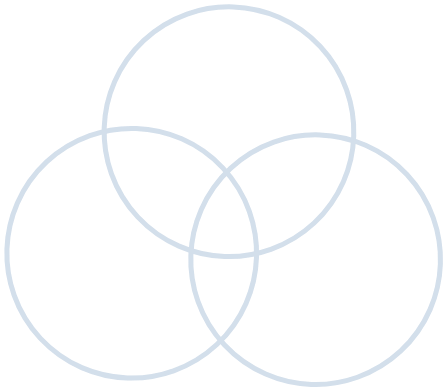

Curriculum overview
Introduction
Trinity CE Primary School is a school located close to the centre of Henley, around half a mile from the River Thames. It has a large amount of outside space with some forest that has been converted into use for Forest School. There is also an outdoor classroom, paddock, firepit, and storytelling area. The school benefits from a science laboratory and each key stage phase has its own breakout space for interventions and group work. There are 304 children on roll split into 1.5 form entry.
Intent
Our school motto, ‘Who is my neighbour?’ permeates every area of our school life. Our diverse and rich curriculum has been carefully designed so that our children develop a strong moral compass so that they are able to serve their community. We teach our children to appreciate the natural beauty of their surroundings by providing regular opportunities for exploring the outdoors and beyond. We have high aspirations for our inquisitive, enthusiastic children who are inspired to learn through a curriculum that is ambitious and ensures that every child is able to flourish. We see Learning Means the World as a curriculum that recognises the importance of human creativity and achievement and one that leads to the development of educated citizens. Our aim is for our school community to develop a deep love of learning so that they become courageous, confident, well-rounded individuals with curious minds.
Rationale for Implementation
We use Dimensions ‘Learning Means the World’ Curriculum as the main vehicle for achieving our outlined intent.
This curriculum is underpinned by four highly relevant world issues, known as the four Cs:-
Culture
Communication
Conflict
Conservation
Communication
At Trinity CE Primary School, we see communication as a key tool in all areas of school life from teaching and learning to behaviour management. We recognise that the way we communicate with one another represents our attitude to those in our school community and that we communicate with everyone in our school respectfully and with thoughtfulness. Children join our school with relatively high speech and language skills and they have a well-established vocabulary. Our aim through our curriculum is to help our children to develop their excellent language skills into excellent communication skills where there is a balance between speaking and listening. Our children are keen readers, but we want to ensure that they are understanding what they read and can have effective and interesting conversations about the texts they are reading both at home and in the classroom. We want our school motto ‘Who is my neighbour?’ to feature within our four C’s and for communication, it is the need to be able to communicate with a wide range of people within our school and our wider community, and also recognise that not everyone communicates through speech. We want our children to use their curriculum to enable them to communicate with everyone and make them feel included.
Culture
Whilst the demographic of our children is predominantly White British, many of our children are fortunate to have been taken to visit places where the culture and ethnicity of the population is different to their own. They are well-travelled and are keen to share their experiences with their peers and teachers. Our aim as a school, through our Learning Means the World curriculum is to ensure that our children learn about a broad spectrum of cultures, backgrounds and traditions throughout the school year and that it is integrated seamlessly into their learning. It is not meaningless or tokenistic. We want our children to develop a strong sense of compassion, empathy and tolerance towards people who do things differently from themselves and celebrate the diversity within the wider community and beyond.
The location of our school is unique in that we are located in the centre of Henley, a town that has a strong cultural heritage with the Henley Rowing Regatta and links to rowing and the river. It is important that we teach our children about the rich heritage and culture of our local area too, so that they have a sense of pride in where they come from and the traditions the locality holds.
Conflict
It is vital that our curriculum, alongside an effective behaviour management programme, teaches our children to have a strong moral compass. We want them to be able to make the right choices and know when to involve an adult if there is a problem they cannot solve. It is important that our children know how to deal with conflicts and disagreements appropriately and not to let, what are generally small problems, get out of hand and escalate. They need to be able to approach their problems with a sense of proportion and to be able to manage their feelings effectively through good communication.
In a broader sense, we need our children to be aware of what is going on in the wider world as many of our children can be very sheltered from global conflict and don’t recognise that there are people living in places where conflict is occurring. We want our Learning Means the World curriculum to prepare them for what is happening in the world but in an age-appropriate and sensitive manner. It will help our children to gain a better perspective on life and the world and this will then translate into how they deal with their own personal disagreements and conflicts.
Conservation
Our school is located in an area of outstanding natural beauty and it is important that we teach our children about where they live and the uniqueness of the area. We want our curriculum to help our children understand that the key factors of conservation are that we look after, take care and are not wasteful with our resources, both in school, at home and in the wider world. Our school’s proximity to the river will allow us to take our learning about conservation to a focal point in the community. Our Learning Means the World curriculum will support us in teaching our children about local conservation issues and what can be done to ensure that the river and surrounding countryside is cared for, kept free of pollution and can be enjoyed for future generations. We also want our children to understand that conservation does not just cover caring for the environment but also important buildings and cultural events in our local area. The idea of respect and pride in their school, locality and community is key to ensuring our children's understanding of what conservation means.
Our curriculum narrative begins with Communication, as we feel it is the starting point for all aspects of learning and understanding. We want to start the year by developing our children’s listening skills as well as clear speaking skills so that they can listen, understand and develop a sense of tolerance for other people’s views and opinions. Without this compassion and understanding, conflict can occur and this is what we will look at next, Conflict. We want our children to understand why conflict occurs both within their own relationships and on a more global scale too. We want our children to understand that good communication skills can lead to good conflict management and therefore we can get along better with others; we can start to be good neighbours. The next world issue will be Culture because by being more understanding and tolerant, we can show respect and positive engagement with people from backgrounds, religions and cultures that are different from our own. Finally, we will explore Conservation, in both environmental and cultural terms. The Henley Regatta will be taking place during this time and we can study the impact events such as these have on the environment, both positively and negatively.
We also encourage our children to have high aspirations by teaching them about human creativity and achievement through additional Competency Units about famous figures and groups of people that focus on Creativity, Commitment, Courage and Community.
If you wish to find out more information about our curriculum, please contact our Lead Teacher Catherine Aiken via the school office or click on the individual subjects in the menu on the right.
